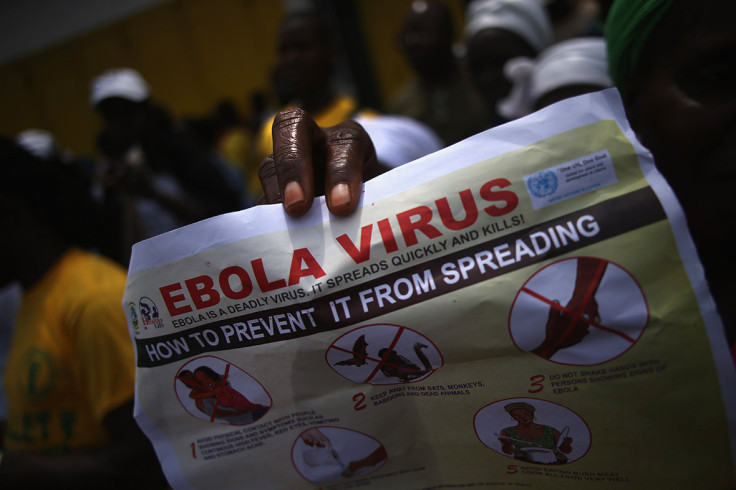Ebola Outbreak: 90,000 Deaths Predicted in Liberia's Montserrado by End of 2014 Without 'Urgent Intervention'

The death toll in the northwestern Liberian county of Montserrado could surpass 90,000 by mid December, if international efforts to contain the Ebola virus are not stepped up, a new study shows.
New modelling research, published in The Lancet Infectious Diseases journal, has found that the number of Ebola treatment centre beds and other measures needed to control the epidemic in the area substantially exceeds the total pledged by the international community to date.
Without expanded control efforts, up to 170,996 total reported and unreported Ebola cases and 90,122 deaths are projected in Montserrado by 15 December.
The study estimates that of these, 42,669 cases and 27,175 deaths will have been reported by that time.
Montserrado is the most populous county in Liberia, with the highest density of people in the capital Monrovia.
Nearly 10,000 people are infected with the disease in west Africa, according to the latest statistics from the World Health Organisation. In total, 4,877 people have so far died.
"Our predictions highlight the rapidly closing window of opportunity for controlling the outbreak, and averting a catastrophic toll of new Ebola cases and deaths in the coming months," warns Alison Galvani, senior author and professor of Epidemiology at the Yale School of Public Health.
Researchers used mathematical modelling to evaluate the ability of interventions to control the Ebola outbreak in Montserrado during various time periods.
Intervention will only be meaningful if it is timely, and so far it has not been
Such interventions include new treatment centres to isolate and treat Ebola patients, case finding through contact tracing and protective kits to help household-based isolation of infected individuals.
However, as many as 97,940 cases of infection could be prevented without a "rapid scale-up" of control measures starting on 31 October, the study states.
Necessities include an additional 4,800 hospital beds, a fivefold increase in the speed with which cases are detected and allocating protective kits for home care.
Had all three interventions been implemented two weeks earlier, before 15 October, they would have been expected to prevent up to 137,432 total reported and unreported cases.
The hunt is on for biopharmaceutical companies to produce a much-needed vaccine against the virus. This week, GlaxoSmithKline said it would likely have a drug developed by the end of this year.
"While vaccines to prevent Ebola remain unavailable, our study urges a rapid and immediate scaling-up of all currently available non-pharmaceutical intervention strategies to minimise the occurrence of new cases and deaths," Galvani added.
Professor David Fisman and Ashleigh Tuite, from the University of Toronto's Dalla Lana School of Public Health in Canada, who were not involved in the study, commented: "The urgency of timely intervention in the Ebola epidemic cannot be overstated.
"From a global perspective, controlling the Ebola epidemic in west Africa is not only a humanitarian duty but also a matter of crude self-interest. This study shows that intervention will only be meaningful if it is timely, and so far it has not been."
© Copyright IBTimes 2024. All rights reserved.






